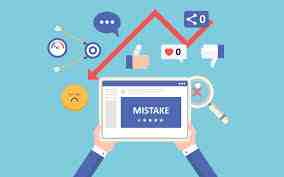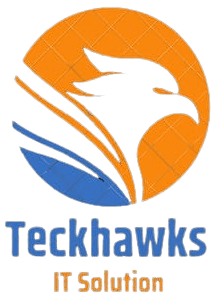What is affiliate marketing? How to start Affiliate marketing in 2023? || By TeckHawks
Affiliate marketing is largely based on promoting other people's products rather than your own and earning a percentage of the sale amount. In a more precise way you can say that, Affiliate marketing is the digital version of being a salesman.
How does affiliate marketing work?
The merchant (affiliate) earns money when customers buy items online and then get redirected to the affiliate's website. Most affiliates earn commission on each sale generated by their site.
Challenges of affiliate marketing:
There are many different challenges to consider before starting an affiliate program. One challenge could be building trust between merchants and affiliates. Another challenge could be determining how much to compensate affiliates for generating sales.
How do you promote their products?
Promoting affiliate products is just as important as promoting your primary product. If you don't promote your affiliates properly, then people won't know they exist. You need to have a website where you can provide a lot of information about each affiliate product.
Create a page for any affiliate product that contains relevant information and links. Make sure that you use keywords whenever possible. People search for specific terms instead of browsing websites and landing pages.
Write reviews of any affiliate products that you think would benefit customers. Make sure that you write honest reviews and avoid using paid services. Use only free services if you want to get a good reputation online.
Share affiliate products on social media sites. Use social networks like Facebook, Twitter, Reddit, and Pinterest. Your followers may decide to sign up for your affiliate program after seeing that you share affiliate products throughout your channels.
Add affiliate products to your store. In addition to showing them on your website, add them to your eCommerce platform. You can even create special tabs for affiliates where they can find instructions on how to sign up for your program.
Offer incentives for referring friends and family members to your site. Referral programs increase sales and help affiliates make money. When someone recommends a friend or relative's content, the person who gets referred receives credit towards their own commissions.
Boost your sales in three simple steps:
Identify micro and macro Influencers - Finding influencers takes time, efforts and money. With Ambassador, you can identify the micro & macro influencers within your existing base on autopilot.
Create ambassador marketing campaigns - After you have identified the influencers from your existing user base, you can send personalized campaigns to the right ambassadors with just a few clicks.
Track sales, website traffic and engagement - No more guesswork or manual calculations – Connect your Facebook & Twitter and ambassador and it will take care of the rest. Know exactly how much traffic, engagement & revenue each ambassador brought in. All this, without a single line of code.
Traffic on affiliated links:
You need traffic - you need people to refer. There are two basic ways to do this:
1. Link building:
In order to get traffic on a website, you need links. Creating backlinks is the process of getting external sites to link to you. These could be blog comment links or article submissions on article submission websites. Don’t spam - use good judgment and focus only on high quality sites. If they’ve linked out to you, they obviously trust you and/or your content.
2. Content Marketing:
Content marketing is about providing valuable, consistent, long-tail, relevant information to your audience. You don't add filler content just to make a post longer - the content should be useful and helpful to your readers. Focus on being useful, not on making posts look fancy.
3. Guest posting:
Guest blogging is a great way to get backlinks and exposure for your business. Find blogs related to your niche or industry, and send them guest posts. Blogs love receiving free content, so if you do this regularly, they'll happily share your posts with their own audiences. Be sure to research the blog / publication you're recommending to avoid getting caught in a reputation blacklist or worse yet, banned from being published altogether.
4. Social Media Marketing:
Social media platforms provide a fantastic opportunity to connect with customers. A strong social presence is invaluable for any brand, small or large, and helps keep customers engaged, up to date, and coming back for more. But a lot goes into maintaining a successful social media strategy, and it's a constant work in progress... Here are some tools and tips that can help you track and build your current social media campaigns.
5. Search Engine Optimization:
SEO is a term that describes how search engines work. In general terms, it refers to the process of optimizing your website and its pages so that they appear higher in results on search engine queries. There are many tactics to improve your SEO, including using keywords in page titles and meta tags, writing detailed, unique content, and linking internally between various pages.
6. Paid Advertising:
Paid advertising refers to third party companies offering pay per click ads online. You simply place a banner ad on your site or blog and paid advertising networks will automatically serve ads to users of certain sites and platforms. As an example, you may have an advertorial piece running on a travel site or a review site. Users who visit that site are shown your advertorial at no cost to yourself.



